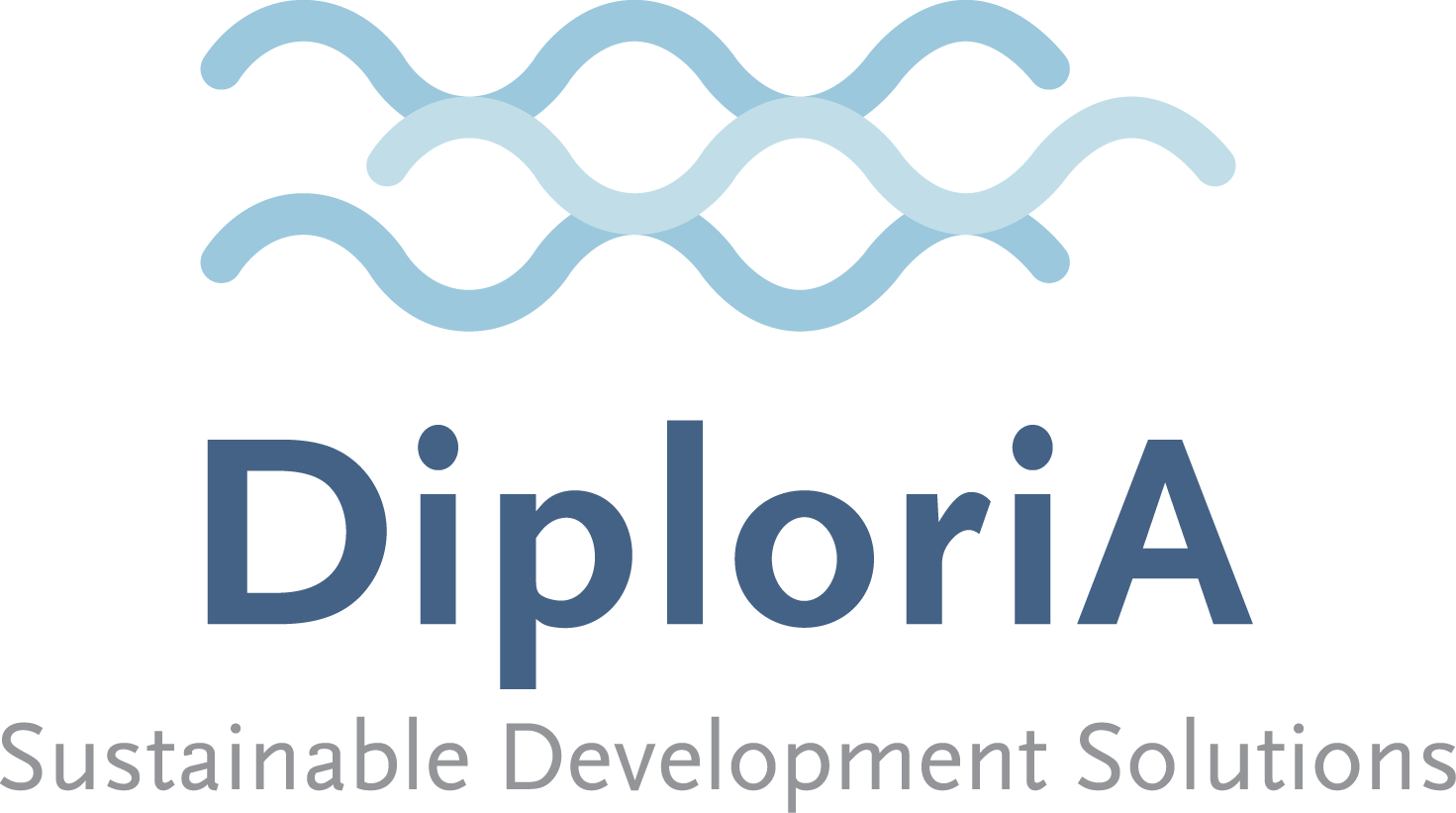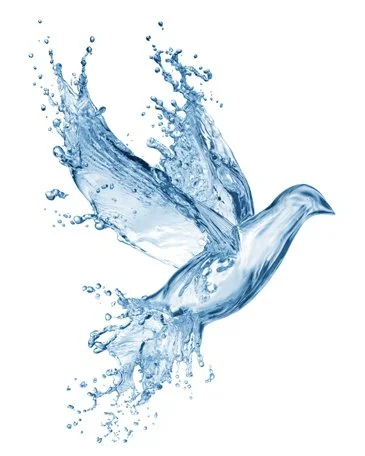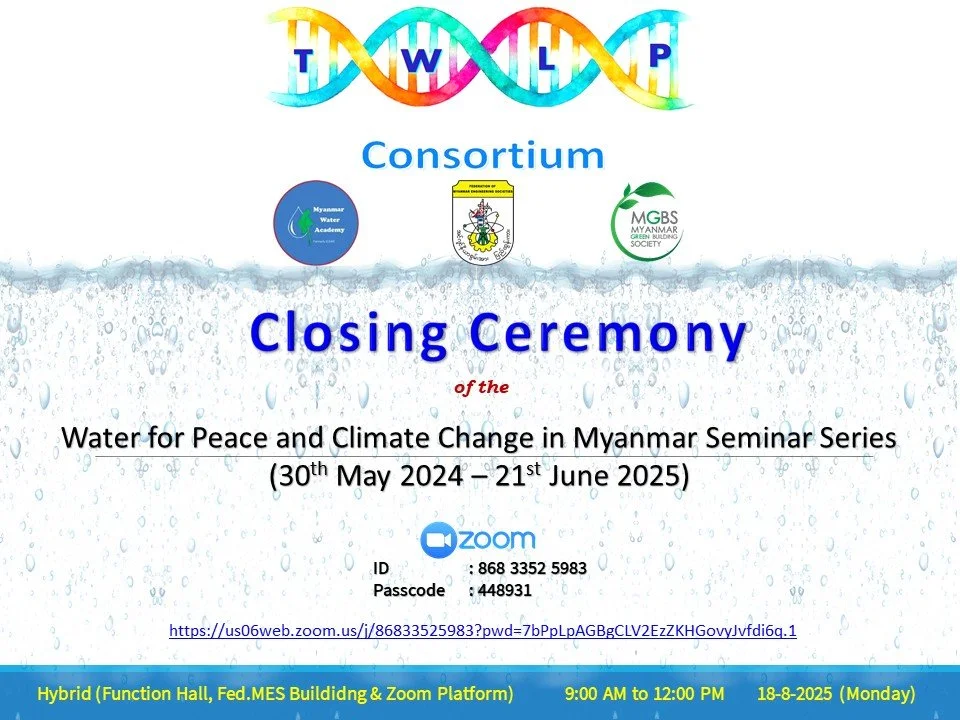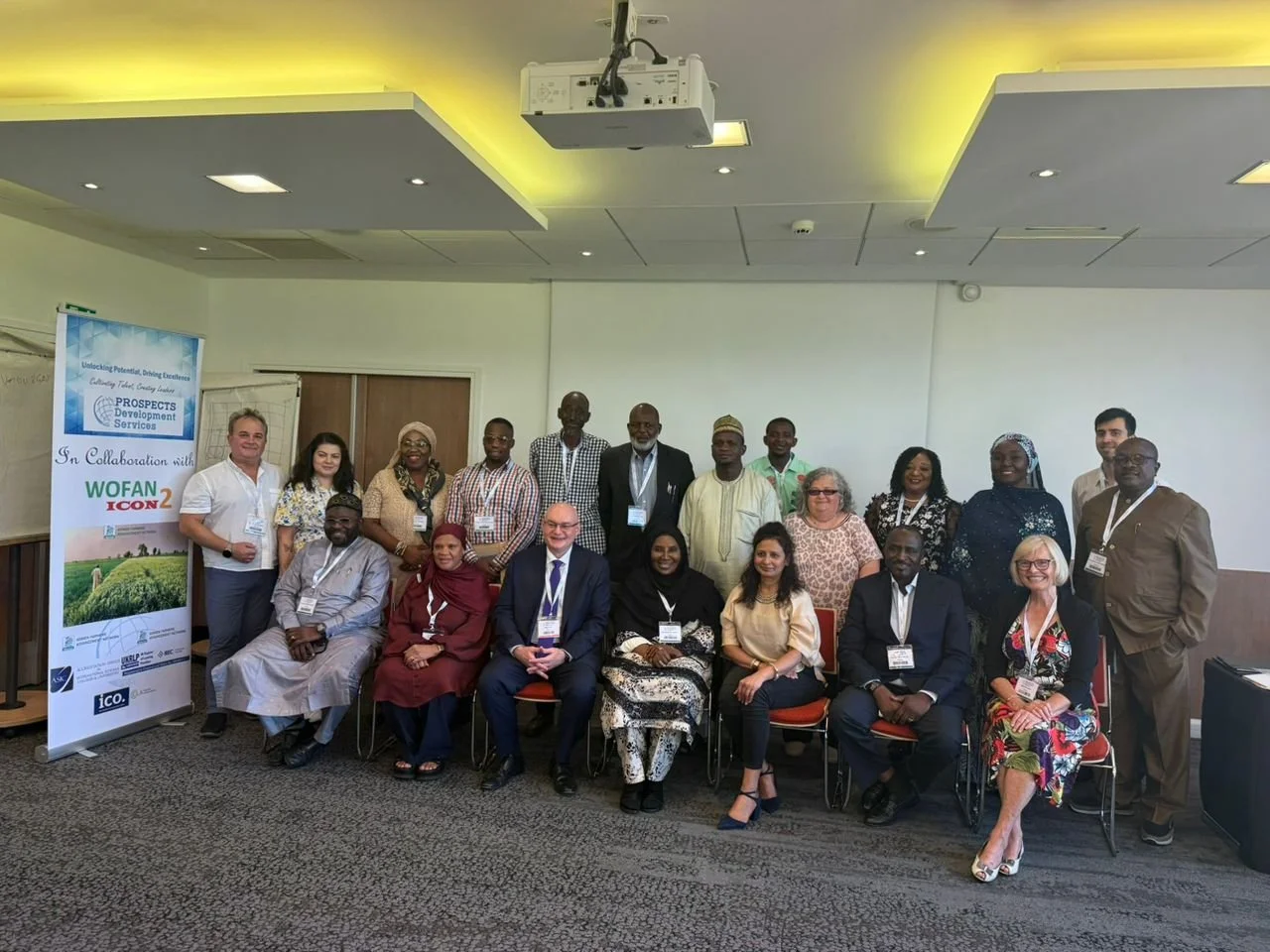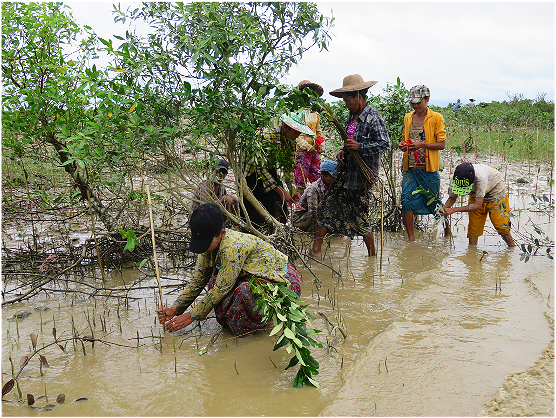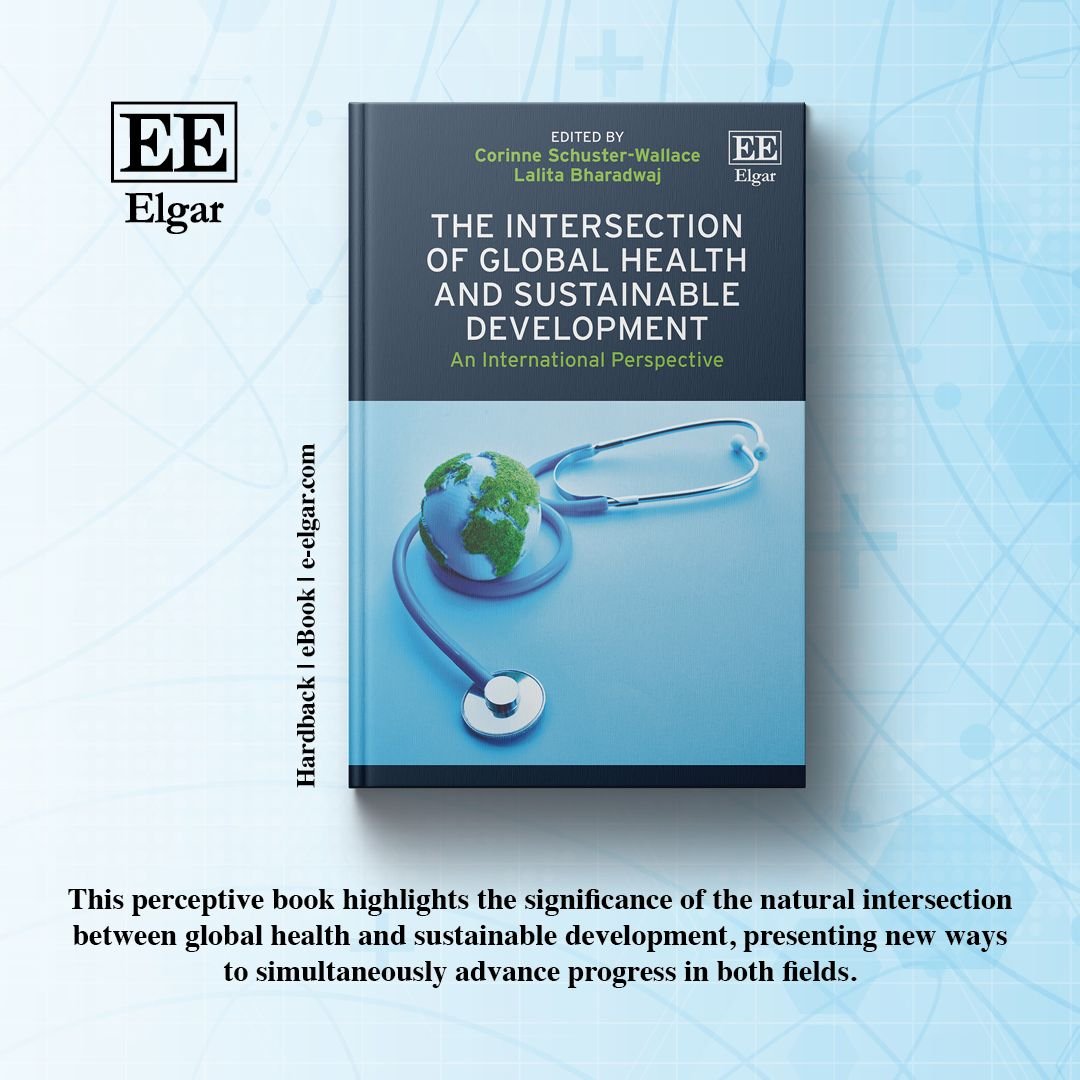
News and Blogs
Women and Water Security for Peace
This year, we commemorate 25 years of United Nations Security Council resolution 1325.
To celebrate women’s contributions to Peace and Security, UN Women Europe and Central Asia launched the campaign "The Past, Present, and Future of Women, Peace, and Security".
You may find my contribution HERE
Water for Sustainable Development: the Role of Business and Industry
HORASIS, the Global Visions Community for Sustainable Growth uniting CEOs from renowned corporations and business leaders from emerging markets, will convene its annual global meeting in São Paulo, Brazil on 7 - 9 October, 2025 . This year’s motto is “Harnessing the Power of Cooperation”. Under the title “Water: the new Global Currency”, the National Water and Sanitation Agency of Brazil (ANA), the Government of São Paulo, water using and service providing industries and water security experts will give their insights on how to collectively achieve water security for all as the foundation of green growth.
The article Water for Sustainable Development: the role of Business and Industry gives some background to contextualise the discussion.
Seminar series ‘Water for Peace and Climate Change in Myanamar’ concluded
The Transformative Water Learning Partnership (TWLP) concludes its one year seminar series on water for peace and climate change. During 23 topical seminars and 3 roundtable meetings, 1700 water professionals and engineers from different backgrounds boosted their knowledge of the institutional, social and environmental aspects of sustainable water use and management. In TWLP the Federation of Myanmar Engineering Societies, the Myanmar Water Academy and the Myanmar Green Building Society join forces to provide knowledge and capacity for professionals to address water and climate challenges in a holistic and integrated way.
I had the pleasure to contribute to the third seminar on Leading Water Instititions.
Green Gold: Climate-Smart Agriculture, Carbon Markets & Sustainable Business Strategies
During the Green Gold interactive training workshop in Paris, the leadership of the Women Farmers Advancement Network of Nigeria (WOFAN) and key partners from Academia and the Public and Private Sector set out to develop the strategy for the future of WOFAN, building on 30+ years of success in supporting women farmers towards sustainable agriculture practice, and incorporating the challenges and opportunities of climate change.
I had the pleasure to participate as International Water and Climate Change Advisor in this dynamic and forward looking exercise lead by Prospects Development Services, UK.
WOFAN has developed a unique and effective structure for making local farming cooperative, sustainable and profitable in a pro-poor and gender-sensitive way. Under the visionary leadership of Dr. Salamatu Garba, 675.000 women farmers united in 22.500 self-help groups and guided by the tools, trainings and support network of the WOFAN Women Empowerment Foundation, cover their family needs and obtain additional income from their jointly processed and marketed products. The network is the backbone of a transformative agricultural practice in Northern Nigeria, where traditional methods are paired with scientific innovation and tailored to the local sociocultural setting.
In addition to ensuring that current agricultural practices are climate-smart, there was agreement to complement the current range of products with carbon sequestering crops that are nutritious and marketable. These tree plantations in strategic locations not only will compensate the carbon emissions produced by rice, but also are envisioned to bring additional carbon credits for the network and its members. Furthermore, they will provide shade for their farms and settlements and improve health and wellbeing.
A summary video can be accessed here.
Out now: Gender Responsive Climate Action in Myanmar
UN Habitat recently published Gender Responsive Climate Action illustrating the added value of gender mainstreaming local climate action in Myanmar. The publication summarizes the process of gender sensitization at local level building on the Climate and Gender Analysis that I have conducted for the UN Habitat Myanmar Office as part of the EU funded Myanmar Climate Change Alliance project (MCCA2).
The vast ethnic and cultural diversity of the country, compounded by colonial regulations overlying customary law makes local gender realities divers and complex. A comprehensive Gender Mainstreamed Baseline Survey Tool that was developed as part of the Climate and Gender Analysis provides project teams and action partnerships with a deeper and nuanced understanding of local gender realities and concrete entry points to ensure that women and men benefit equally from jointly developed interventions.
Out now: The Intersection of Global Health and Sustainable Development, An International Perspective. With a foreword of the Co-Founders of Cansu Global
This new book on the intersection between global health and sustainable development, edited by Dr. Corinne Schuster-Wallace and Lalita Bharadwaj of Saskatchewan University, Canada, contains narratives from a wide variety of regional and health contexts and illustrates the importance of social and environmental justice in achieving sustainable and equitable development for all. The foreword of HRH Princess Dr. Nisreen El-Hashemite and Drs. Alice Bouman-Dentener, Co-Founders of CANSU GLOBAL, underscores the key importance of water.
Find a link to the publication here
People Around the World (PAW) 2024: Keynote on Water and Social Justice
Water and Social Justice: two sides of the same coin
Drs. Alice Bouman-Dentener, Co-Founder Cansu Global
With a rapidly expanding and developing global population, freshwater demands are soaring and water scarcity is on the rise, acerbated by the impact of climate change on the hydrosphere. While having access to sufficient, safe and affordable water was recognised as a Human Right in 2010 through UN resolution A/RES/64/292is, it remains an illusion for over two billion people on our planet (26% of the human population).
In the 46 years between the UN Water Conference of 2023 and the first global water conference of Mar del Plata in 1977 the proportion of the global population with access to safely managed water has doubled to 70% (5.6 billion people). However. this impressive figure conceals the persisting inequalities between rich and poor, urban and rural, regions, social groups and genders.
Not having access to sufficient and safe water condemns people to a situation of continuous morbidity and social exclusion, impedes their development and lowers their self-esteem.
The 2030 Agenda for Sustainable Development aims to leave no one behind. But the conditions for the decentralized and inclusive water action that is needed to ensure marginalised people‘s health, dignity and empowerment are not in place.
Historically, water management is compartmentalised and focusing on technical aspects, resulting in partial solutions for the most obvious water challenge. If we want to achieve water security for all, we have to leave the path of reductionism and address water for sustainable social and economic development in a holistic and systemic way, at the lowest appropriate level, and with the full and equal participation of all stakeholders, including the social groups that continue to be marginalised.
Academia plays a central role by providing the comprehensive and unbiased data and knowledge base for informed decision-making at all levels.
The marginalisation of indigenous peoples extends to ignoring their traditional ecological knowledge, their deep understanding of water as the “lifeblood of Mother Earth” (Grand Chief Philip Steward) and their sound water stewardship practices.
It would be prudent to listen and learn, and to marry technological innovation with ancient wisdom; so that solutions to water challenges are appropriate for the local circumstances, leave no one behind, and preserve the environment that we ultimately depend on for our survival.
“Making a World of Difference”, the 6th PAW International Congress of the University of Saskatchewan (USask), taking place on October 17th and 18th in Saskatoon, Canada, focused on the water-food-energy nexus. I had the privilige to deliver the keynote on Water and Social Justice: Two sides of the same coin.
A video of the lecture can be accessed here.
No Water No Future at upcoming Horasis Global Meeting in Espiritu Santo, Brazil
During the upcoming Horasis Global Business Forum in Vitoria, Cansu Global and the National Water and Sanitation Agency of Brazil (ANA) will convene a plenary session on 26th October 2024, 14:30 - 15:30 hrs to draw attention to the importance of water for economic development and discuss the role of the private sector in achieving water security for all.
Water is everywhere on earth, but less and less available in sufficient quantity and quality. And only two percent is drinkable as groundwater (70% of which we use in agriculture). Water is essential for our bodies and for business but we squander it – how can we change our attitudes? How to factor in the value of our natural capital, including water, into our economic considerations? What concerted efforts by global leaders will support life-giving water supplies?
• Veronica Sánchez da Cruz Rios, President, Brazilian National Water and Sanitation Agency, Brazil
• H.E. Felipe Rigoni, Espiritu Santo Secretary of State for Environment and Water
• Munir Abud de Oliveira, Chief Executive Officer, CESAN, Brazil
• Luana Pretto, Chief Executive Officer, Instituto Trata Brasil, Brazil
Welcome by
• HH Princess Nisreen El-Hashemite, Executive Director, Royal Academy of Science International Trust, USA
Chaired by
• Alice Bouman-Dentener, Co-founder, Cansu Global, The Netherlands
Webinar on Water
The recordings of the webinar are now available at: https://bit.ly/3Sou7B2
Women in Science for Water and Society
It was my pleasure to speak during the Women + Water Special event ‘Women in Science for Water and Society’ organised by Global Water Futures. The Women + Water lecture series runs since December 2018. It addresses the roles, responsibilities and development opportunities of women in the broad water domain. the full playlist of lectures can be accessed here.
Climate Action in the EU: the Role of Women
Addressing climate change needs all hands on deck. The role or Women as one of the Major Groups in society is often mentioned in policies and strategies but often lacking when principles are translated to practice. The EU Committee of the Regions organised a workshop on Women, Policies and Climate Change during Green Week 2019 in Brussels. I had the pleasure to participate in the panel to contribute the role of women’s civil society.
The European Union has included a binding target in its 2030 Climate and Energy Framework to reduce greenhouse gas emissions to at least 40% below the 1990 levels. The EU Member States are in an advanced process of developing integrated National Climate and Energy Plans (NECPs) for that purpose. On a longer term, the EU aims at a climate neutral economy by the year 2050.
These are ambitious targets and they cannot be achieved through technical innovation alone. They require changes in lifestyles and consumption patterns. And they need all hands on deck.
Globally, the importance of gender sensitivity and women inclusiveness in addressing climate change is stressed by UN agencies and other institutions (e.g. UN WomenWatch). In the EU climate agenda, the role of women in climate change adaptation and mitigation is not visibly included.
The European Committee of the Regions, on the initiative of the Government of Navarra Spain, has organised a discussion on Policies, Women and Climate Change during Green Week 2019. I had the pleasure of participating in the panel to speak about the role of women’s civil society.
The workshop addressed how to achieve horizontal and vertical integration in policies and practice, such that climate action is looked at from different perspectives, effectively connects all relevant areas of activity, and includes all relevant stakeholders. The focus was on inclusion of women.
Regional and local authorities play an important role in stimulating and organising climate action. They ensure that climate adaptation and/or mitigation measures are taken at the lowest appropriate level and that bespoke solutions are developed and implemented in close cooperation with the different stakeholders, including civil society groupings such as Women and Youth. The regional government of Navarra, Spain has in October 2018 launched a climate action network of female government officials and parliamentarians. The Network is a leading force for climate action and partners with women’s civil society to develop and implement joint action programmes that have a cross-cutting perspective and an integrated and gender sensitive approach.
Women’s civil society in turn, has important contributions to make. Women organise themselves in social networks that span the different segments and sectors in society, and connect local, national and international levels; as such they are an instrument for both horizontal and vertical integration. Women’s organisations voice the concerns and knowledge of citizens for informed decision-making. At the same time, they unite active citizens to contribute to various sustainable development targets, including to climate action. This potential is only marginally used to date.
The main points of my intervention on the role of women’s civil society in climate change adaptation and mitigation are summarised here.
Trade + Impact: promoting women's social entrepreneurship
A social enterprise not only generates revenue, but also creates positive social and environmental returns. Social entrepreneurs follow the triple bottom line of People, Planet and Profit; they create innovative paths for achieving sustainable development.
Trade + Impact is a trade association based in Toronto, Canada, that unites and supports women-lead social enterprises in the crafts and natural cosmetic sectors. The focus is on Africa and the Middle East.
I am thrilled to have joined their Board of Directors of T+I as Vice-Chair and Secretary of the Board and Lead of the Governance Committee.
Women and water in agriculture: paving the way for a better future
This Word Water Day is about ‘Leaving No One Behind’.
Women are often a crucial resource in agriculture, but face considerable restrictions to contribute fully to rural economies in developing countries. Australian Water Partnership (AWP) is funding a joint project of FAO and UTS-ISF that, together with local partners, addresses the gender, water and food synergies in Myanmar. I have the pleasure of participating in the project as International Advisor. For more information, see the Link
Agriculture is the backbone of Myanmar’s economy, employing around two-thirds of the labour force and accounting for over one-third of GDP. Women, in turn, are the backbone of the agricultural sector and their active engagement, including in the provision, management and safeguarding of water, will yield substantial benefits for sustainable agriculture practice and food security.
Australian Water Partnership (AWP) has announced funding of a project that addresses the gender, water and food synergies in Myanmar. I have the pleasure of participating in the project as International Advisor. For their full announcement, see Link
Discussing food-water-gender with FAO Representative to Myanmar, Mrs. Xiaojie Fan and staff members involved in the project
The project ‘ Gender, Water and Food Synergies in Support of the Sustainable Development Goals in Myanmar’ is the first project in a partnership of the Australian Water Partnership and the UN Food and Agriculture Organization to address agricultural water management in the Asia Pacific. Lead organisation is the Institute for Sustainable Futures of University of Technology, Sydney (UTS-ISF). Local Partners in the project include WRTC-Myanmar and Water Mothers of Myanmar.
Water Mothers of Myanmar celebrate International Women's Day and World Water Day
Water is key for women to lead healthy and productive lives and women play a central role in the provision, management and safeguarding of water. Water Mothers of Myanmar create a movement that addresses the water-gender-development interface in their country
Water is essential for women’s social and economic development and women have a key role to play in the provision, management and safeguarding of water. Water Mothers of Myanmar create a movement to effectively address the gender dimension of water security and to empower women to play an active role in water governance across the country.
During the Celebration of World Water Day 2019 in Nay Pyi Taw, Dr. Anna Hluan, Patron of Water Mothers delivered the keynote speech on ‘Leaving No One Behind’. She zoomed in on the pledge of the United Nations to create an ‘all-of-society engagement and partnership’ in which all countries and all stakeholders work together towards transformative change. She encouraged countries to embrace diversity and to effectively include women as partners. She called for 4P: Public-Private-People Partnerships in which the People should come first.
I had the pleasure to attend as Vice-President of WRTC International Foundation, the support structure for affiliated organisations in Myanmar, which includes the Water Mothers organization. We discussed and planned for civil society engagement in water and development action in Myanmar.
Women and Water on International Women’s day 2019
I was happy to see so many references to Women and Water during International Women’s Day 2019. I offer some thoughts and links for further reading in a short blog I wrote.
Women and Water featuring prominently on International Women’s day 2019.
The SDG5 (Gender Equality and Women’s Empowerment) and SDG6 (Water Security) interface is a powerful entry point to advance on poverty eradication while leaving no one behind. I was happy to see so many references to Women and Water during International Women’s Day 2019.
